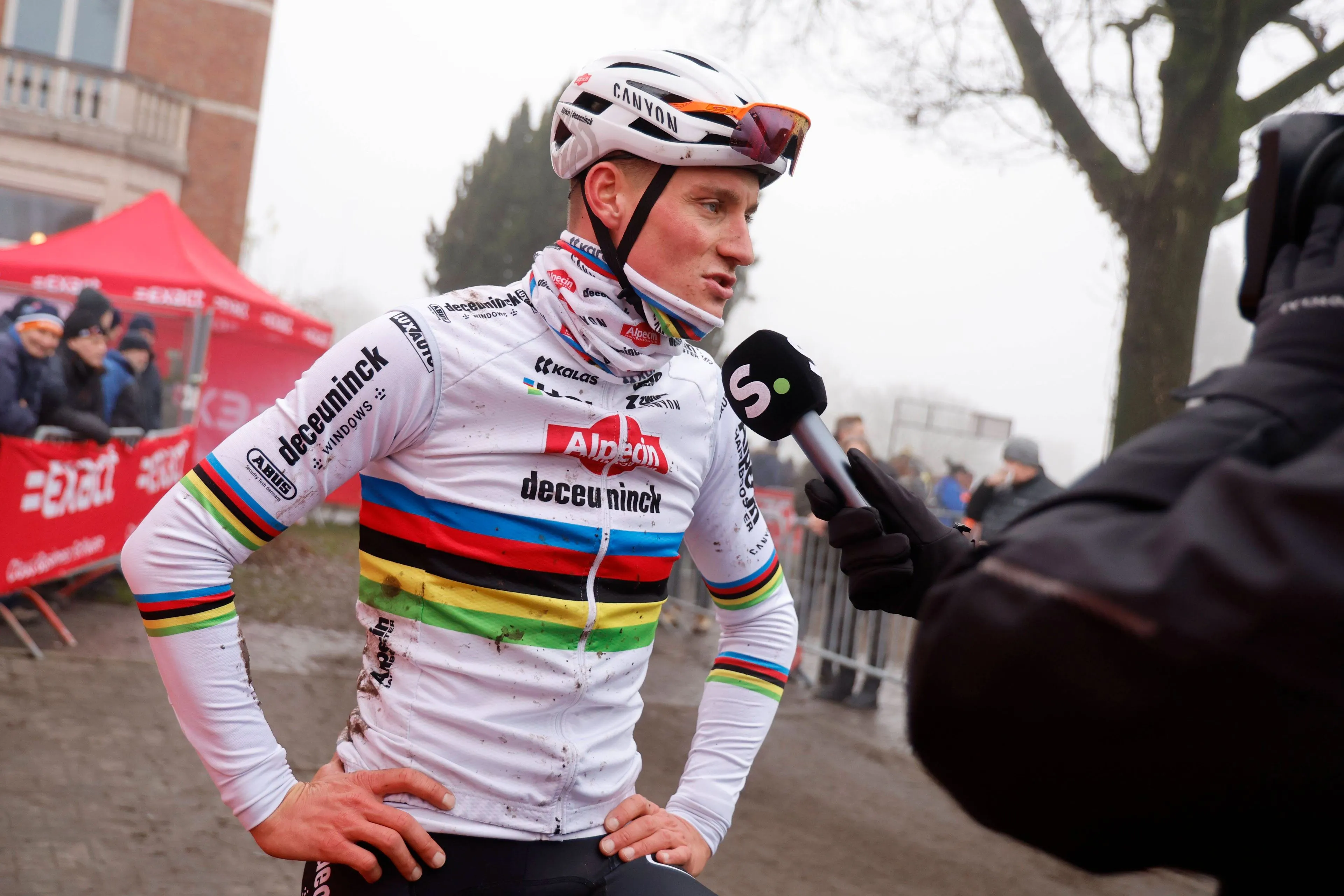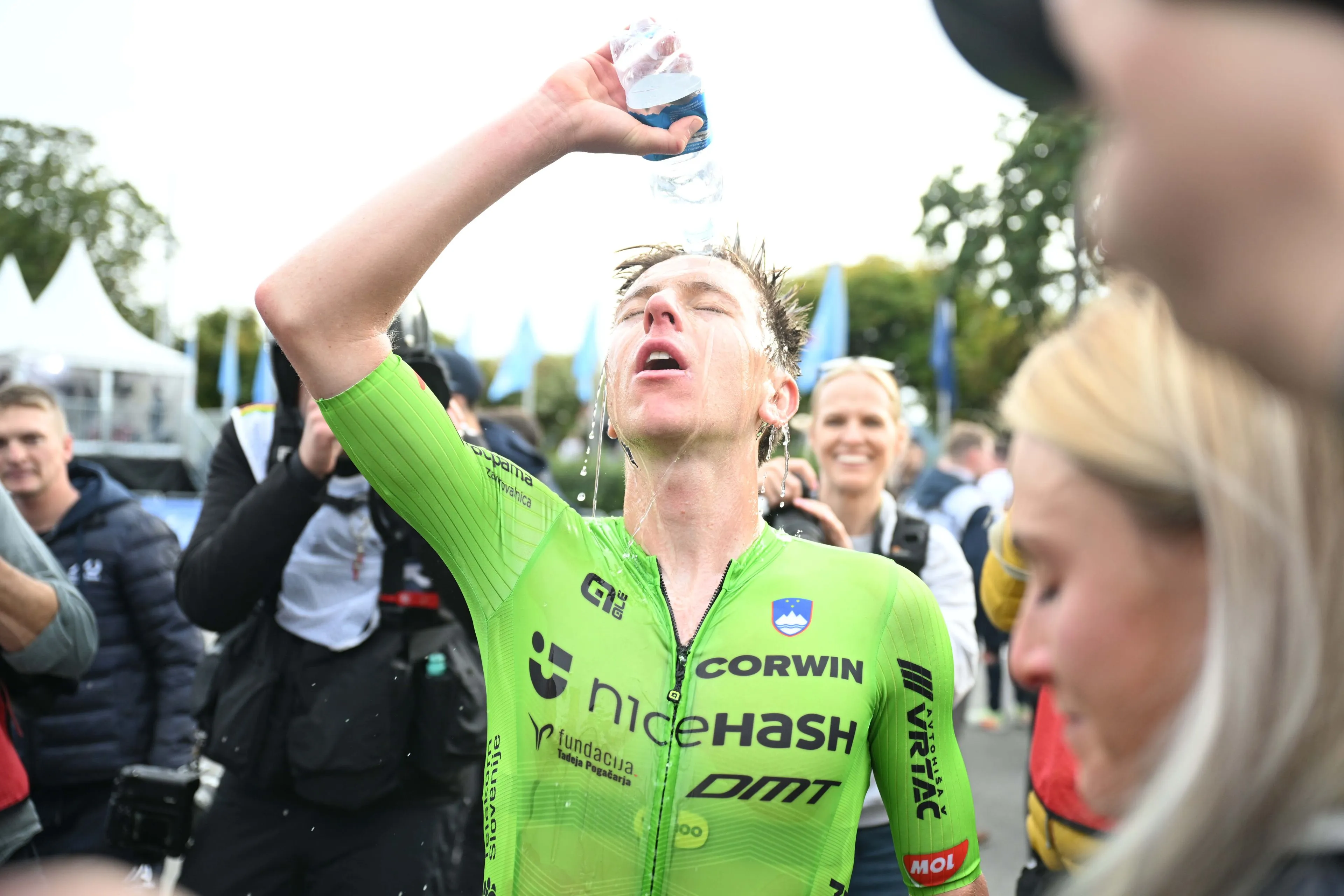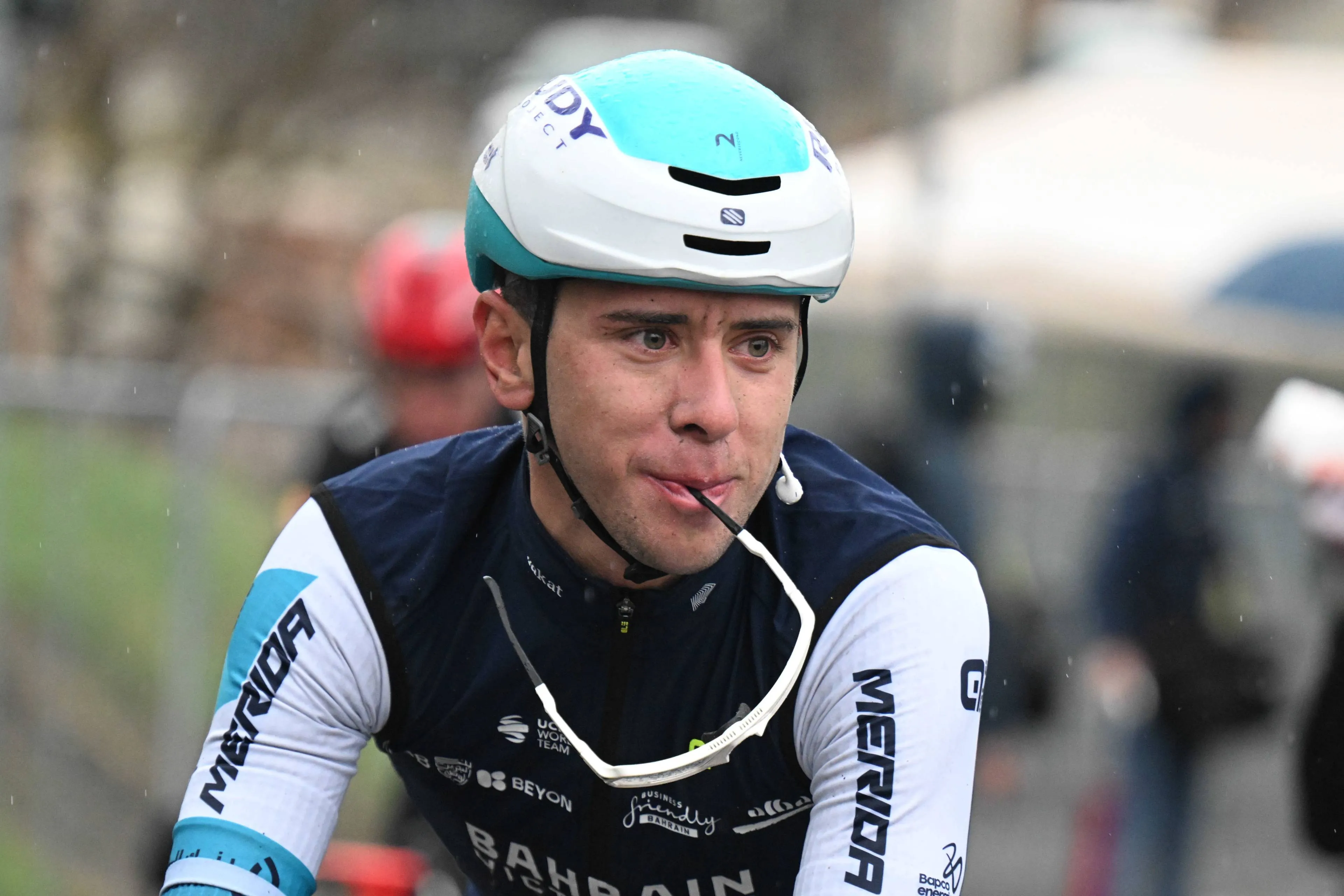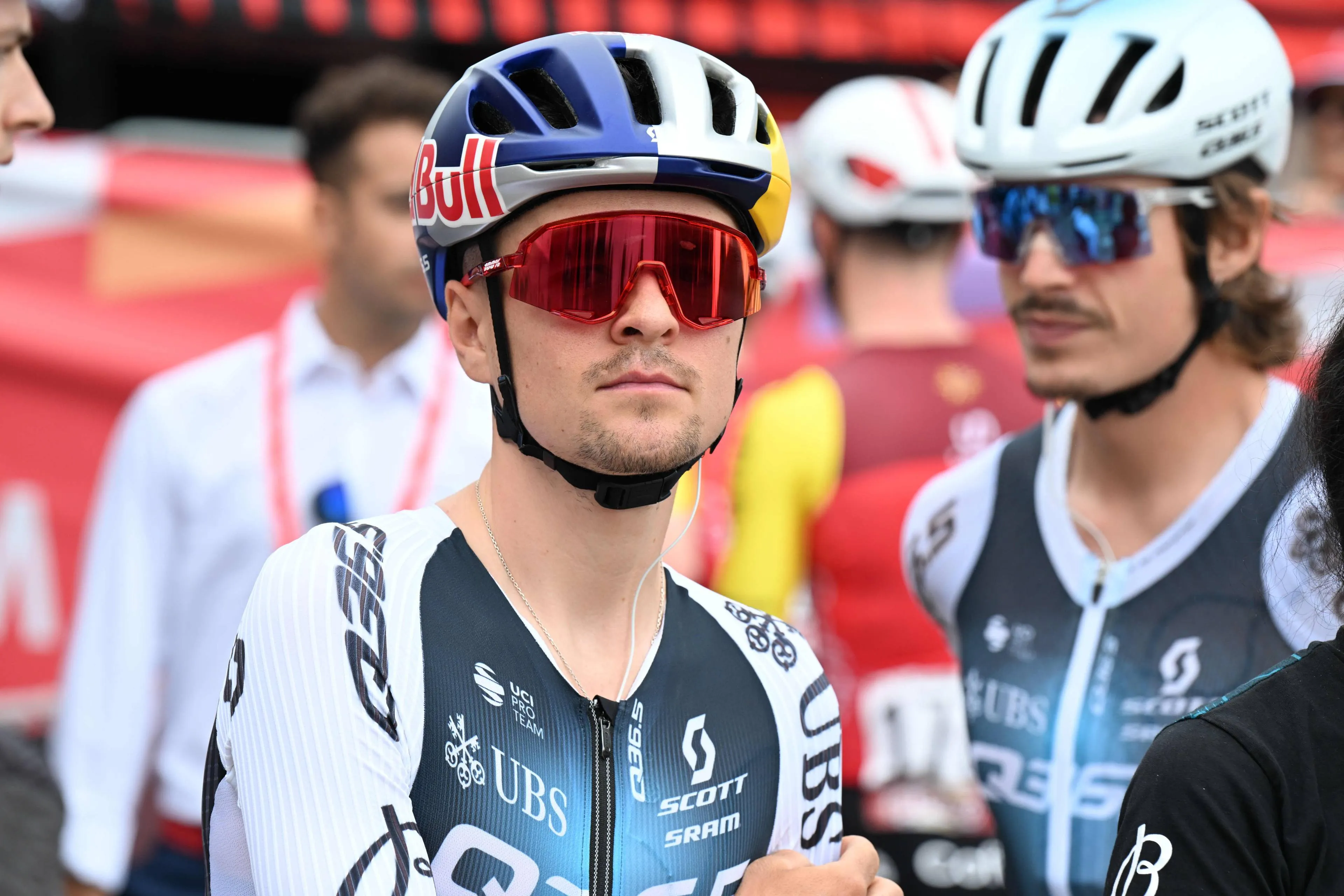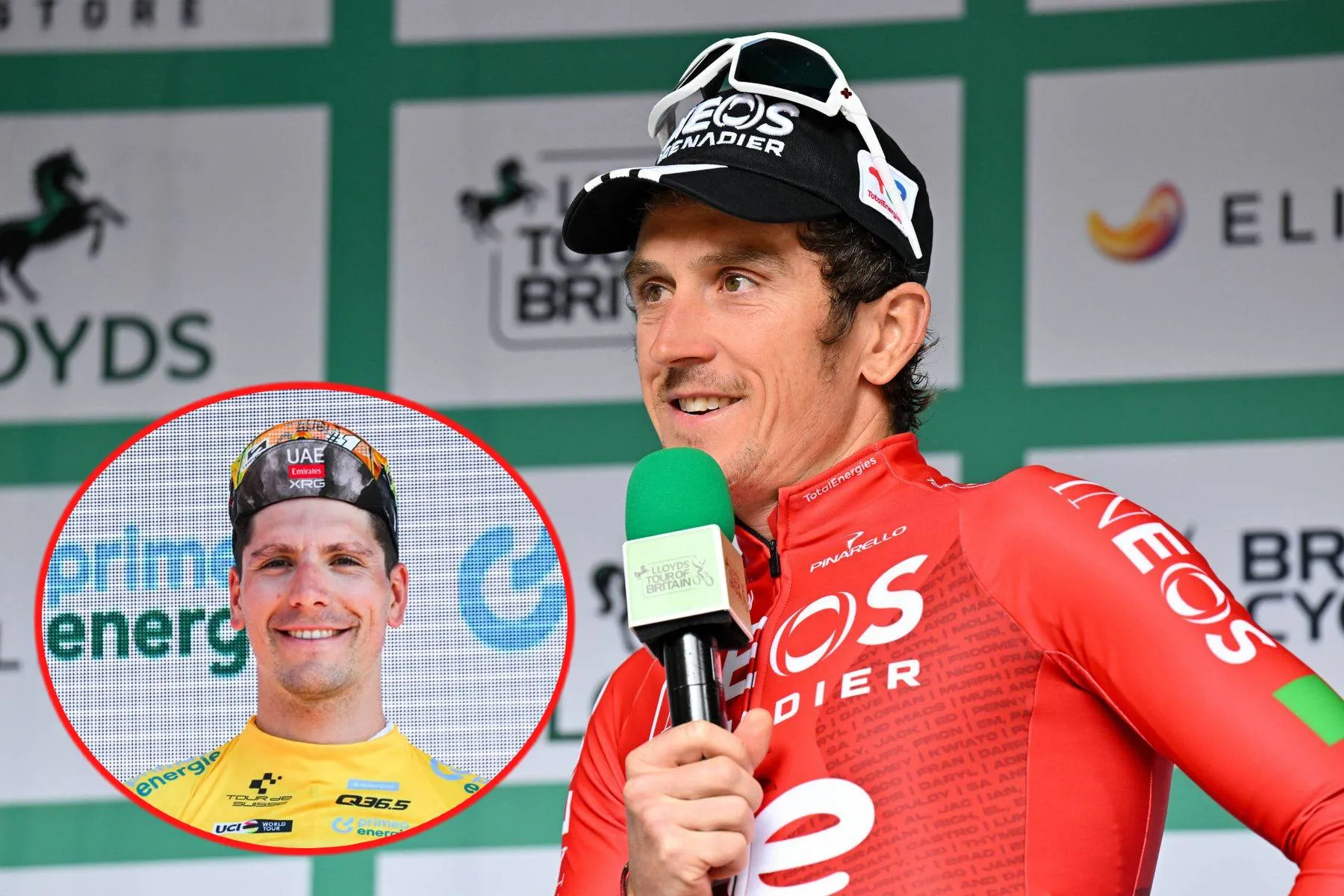Matteo Jorgenson reflects on debut year with Team Visma | Lease a Bike: “I had to kind of forget my muscle memory, or break that pattern”
CyclingMonday, 30 December 2024 at 03:00
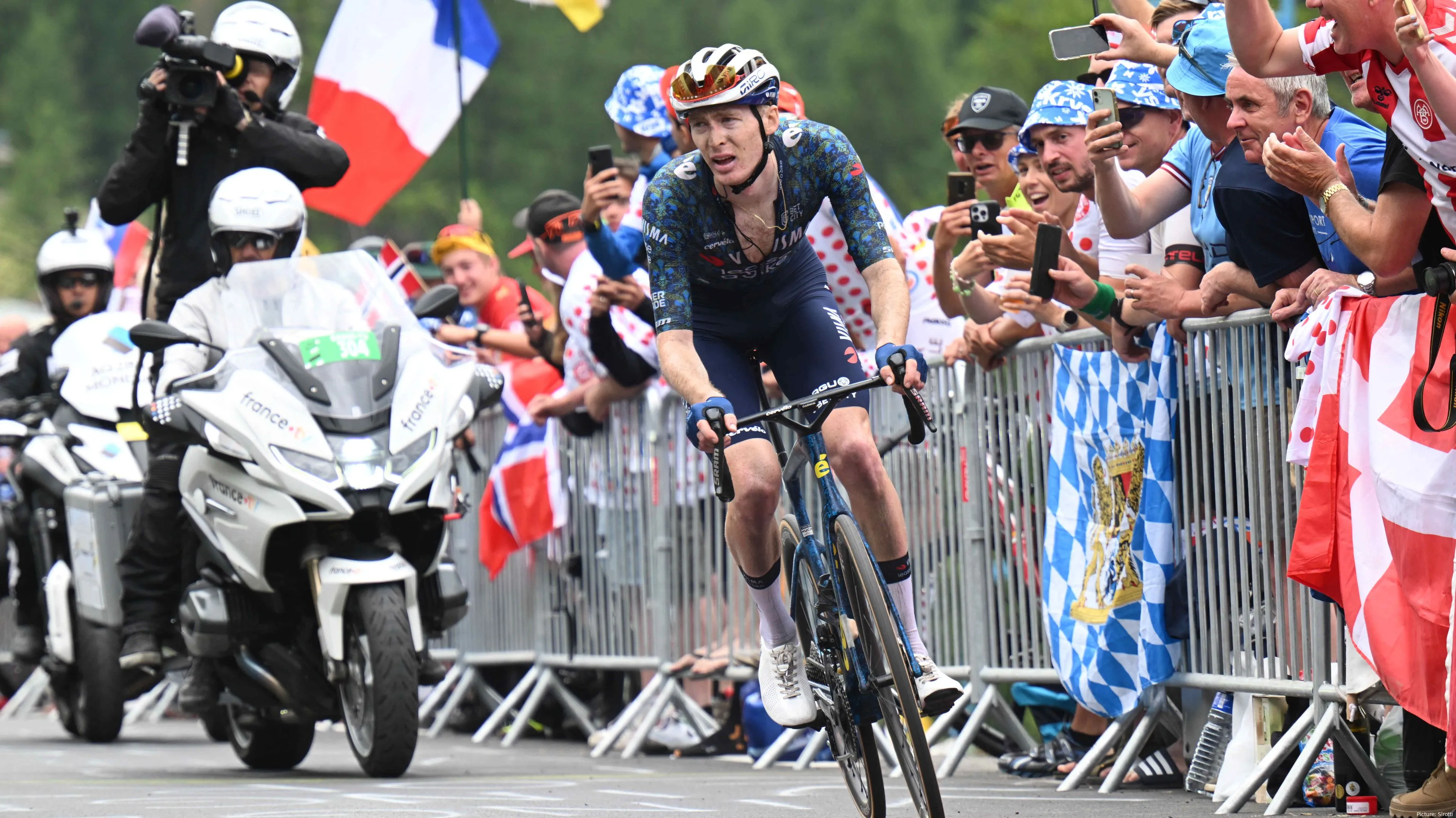
Matteo
Jorgenson enjoyed a strong debut season with Team Visma | Lease a Bike in 2024,
claiming victories at Paris-Nice and Dwars door Vlaanderen. The American also
came heartbreakingly close to a Tour de France stage win, only to be denied by
Tadej Pogacar.
In an
interview with the Italian magazine Alvento, Jorgenson shared insights into the
transformative journey he underwent after joining his new team.
Read also
"When I
signed with Visma | Lease a Bike in the summer, they sent me to their bio mechanist
in Bilbao. He showed me a video of me cycling in the Tour de France and he
said: the way you turn the pedals, you are one of the least efficient in the
entire peloton," Jorgenson revealed.
Jorgenson
joined Visma when the team was on a high following their incredible 2023.
Whilst the team endured a difficult time in 2024, Jorgenson consistently showed
why he is so highly rated, and that he can be a GC contender going forward.
Read also
The feedback
set Jorgenson on a challenging path of change, "I had to really want it,
because it was going to be a tough, nervous process," Jorgenson recalled. "I
had to kind of forget my muscle memory, or break that pattern. If I could do
that, I could make big progress."
Explaining
the process, Jorgenson said, "I would activate certain muscles after
cycling in a certain way for eighteen years. Which ultimately turned out not to
be the right way at all."
Jorgenson’s
commitment to refining his technique has already paid off, as demonstrated by
his impressive results in 2024. With the support of Team Visma | Lease a Bike,
the American has established himself as one of the rising stars of the peloton.
Fans will be eager to see how he continues to progress in the coming seasons.
claps 4visitors 4
Just in
Popular news
Latest comments
- You need to get out moreJezla18-02-2026
- Ego and self regard are at the center of most human folly.TheOlderIGetTheFasterIWas18-02-2026
- You can't win 'em all. These early season races at this level are good because it shows where you are weak and need work.awp18-02-2026
- This is what I wrote 12-02-2026 10:00: "As far as I'm convinced, Remco still has "zero" wins. I invite Remco to stop in Siena to meet his Slovenian master, Pogi the G.O.A.T... but no, it's better to run away and hide. His fans will somehow defend and glorify him. Let me repeat, he still has zero wins in 2026. If someone doesn't have a high enough IQ to understand what I'm talking about, it's because they don't recognize the low ranking F category races. If Remco will beat Del Toro and Adam Yates in the UAE Tour, then I will consider this to be his first win in 2026. Ad acta." PS: Remco still has zero wins. His second and third class races don't count. The first real race comes along and Mustafa Remco fails.Mou-Cro-HR18-02-2026
- This is what I wrote 12-02-2026 10:00: "As far as I'm convinced, Remco still has "zero" wins. I invite Remco to stop in Siena to meet his Slovenian master, Pogi the G.O.A.T... but no, it's better to run away and hide. His fans will somehow defend and glorify him. Let me repeat, he still has zero wins in 2026. If someone doesn't have a high enough IQ to understand what I'm talking about, it's because they don't recognize the low ranking F category races. If Remco will beat Del Toro and Adam Yates in the UAE Tour, then I will consider this to be his first win in 2026. Ad acta." PS: Remco still has zero wins. His second and third class races don't count. The first real race comes along and Mustafa fails.Mou-Cro-HR18-02-2026
- OK, let's stop with the BS. Remco Mustafa didn't have any cramps, 100%. The only truth is, Remco is not the great cyclist that the Belgians and his fans want us to think. Ad acta!!!... Once in the fall of 2025 I said that Remco's chances of following Pogi are equal to my chances, there is no difference. The only difference is that I'm in front of a TV and Mustafa is acting and making excuses live in front of an audience of millions. Ayuso and Remco are the biggest liars in the peleton.Mou-Cro-HR18-02-2026
- I just hope that he just says that he got cramps and that's it, rather than some long-winded excuse which makes him seem even more of a piece of...
 Rafionain-Glas18-02-2026
Rafionain-Glas18-02-2026 - finally, a team that does something smart. I could never understand why Ineos would like Egan train as he did alone. put a motorbike behind him with an earpiece to call out issues above. same with remco crashing into a postal truck.mij18-02-2026
- Wow, that is not a good sign for Remco. Great win for Tiberi!Pedalmasher18-02-2026
- Great champion Remco but his profile is more suitable for Ardennes-like races and tour with no very hard climbs. Not only Tadej and Vingegaard, there are a lot of younger cyclists (del Toro, Ayuso, maybe Seixas, Nordhagen and others) that will soon be big GC boys.
 maria2024202418-02-2026
maria2024202418-02-2026
Loading
4 Comments
